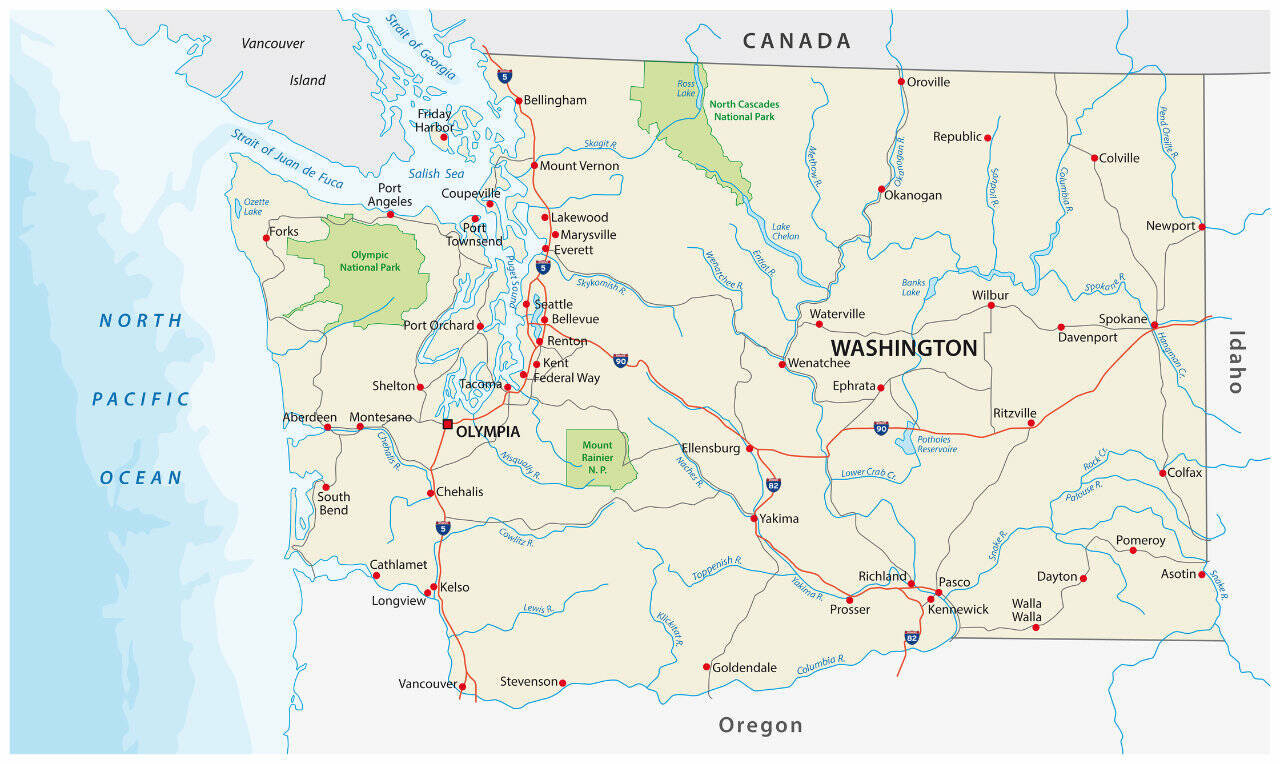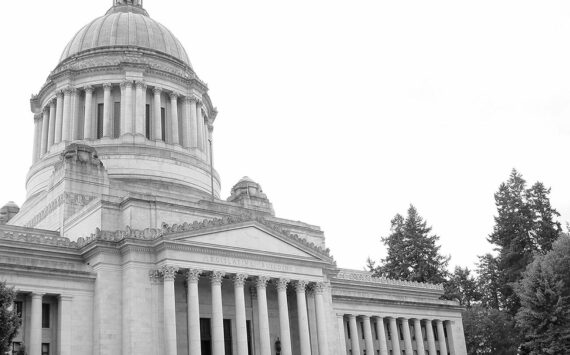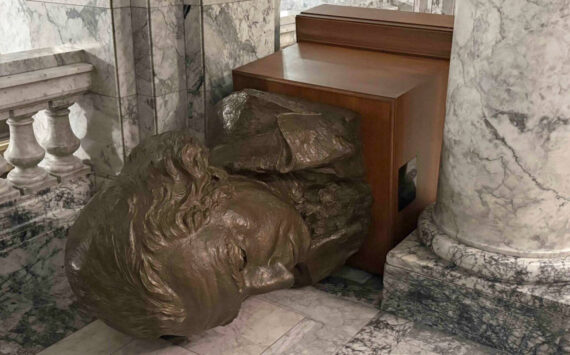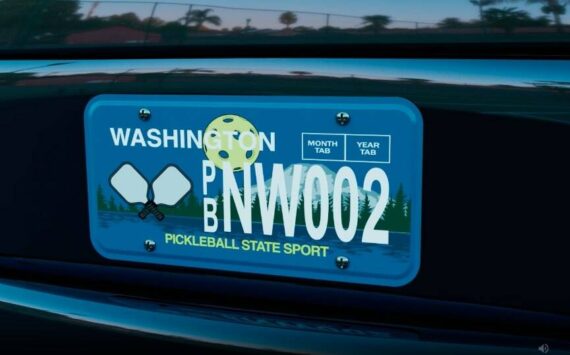I love the Pacific Northwest. With mountains, forests, wild beaches, parks, historic port cities and pace-setting companies, if not industries, there is no place like it.
But if you look at a map, or even a tourist brochure or TV or online region or event profile, you don’t always get what you see on the screen or on those glossy pages.
And if you look at a map (which, of course, fewer and fewer of us do) those black dots and blue or red squiggly lines tell us very little of the place — or the experience it holds.
I used to ask my college-level students to write about how where they live (or have lived) defines them.
Most of them had a dazed expression and said something like “Where I live doesn’t’ define me!”.
But a few (and in every writing assignment it was always only “a few” that would really “get it” — but it was never the same “few”) would get a glimmer, and then a spark, and then a blazing fire of insight about how where live (or have lived) has contributed to who we find ourselves to be today.
From accents to dietary choices, to religious traditions to the cars we drive or the music we listen to, the atmosphere we grew up in, whether we recognize (or even like) it or not, has left its mark on us.
And, of course, on others.
Even those who refuse to define themselves based on where they have lived seem to be willing, even eager, to define others based on where they have lived.
From Southern accents, to West Coast liberal to Mexican immigrant, and dozens more, we make assumptions, if not conclusions, about people we may have never met and, in our minds at least, put them in inflexible, inescapable categories.
Our stereotypes are the default setting, we presume.
And we expect them to act, speak, and vote accordingly.
Assumptions are based on far more than geography
From gender to generations, most of us rely on our assumptions far more than our experience when it comes to defining those around us.
Not all Boomers, men, white people, liberals, Americans, politicians…
You may have noticed that many of us seem to take a breath before going off on a rant and, either at the beginning or after, say something like “But not all men, lawyers, rich people, poor people, immigrants” or whatever the group might be that was the target of the rant.
It’s a strange kind of disclaimer; whenever I hear it, my sense is that what the person is really saying is that, even if my experience (so far) is that 100% of “those people” act this way, it is (or at least might be) possible that something else will occur next time.
As with geography, an individual does not always (for better or worse) align with, or represent the official (or assumed) documentation.
Just as the map is not the place, the person is not always the demographic category.
A popular phrase of a year or two ago was “It is what it is”. What seems to be disorienting many of us is that virtually nothing “is what it is”.
From work to transportation to identity, and much more, the labels and categories that seemed to fit so well for so long, don’t seem to work very well now.
The most “endangered” entity these days seems to be certainty.
There seems to be an endless list of things we all “knew” not that long ago that seem nebulous, if not contradictory today.
Here’s just a few examples; Have you noticed how nebulous “work” has become? Is someone at a coffee shop “working”? Is someone on their computer in a public place “working” or “playing”?
Know your food
A few months ago, there was a debate over whether potatoes were a vegetable. Technically they are a tuber (since they grow underground) but they fit (loosely) in their own category of vegetables.
Are tomatoes vegetables? Even though they grow close to the ground, and in most vegetable gardens, their seeds are interior so they are technically a fruit — as are avocadoes.
Who are we?
A friend of mine used to say that anyone (from anywhere) could be an “American” — but not “everyone” could be Japanese or Chinese, for example.
But what, besides official legal documentation, defines an “American”?
Since we find ourselves in an election year, within a larger hyper-partisan, polarized political climate, many politicians say that their opponents, or even entire political parties are not adequately (or even possibly) “American”.
Once upon a time, political identity was based on policy or philosophical beliefs — especially regarding taxes, citizen responsibility and national pride, if not destiny.
You may have noticed that politicians (especially those running for office) rarely speak of such things.
Which might take us to the obvious question of what constitutes a politician these days, but all too often many of them have long abandoned the “public servant” identity in exchange for the “self-serving opportunist”
To be “American” is to live by an ideology — not ethnicity, religion or skin color.
And, if you have traveled outside of North America, you know that English — especially the not-exactly-correct/proper, “flat-accented” American version of English is, if anything is, what passes for a (near) global language.
Most of us “Westerners” might think of Chinese people as the ultimate monolith that does, almost by necessity, pass the “soup” test — where any given spoonful tastes like any other.
That, of course, is far from true.
The borders of China hold over fifty very different ethnicities/people groups and is split between two languages (Mandarin and Cantonese), and of course, not all Chinese people live within those borders.
In fact the governor of California recently emphasized that 2 million Chinese people live in California; that’s more than Japan and the Eurozone combined.
Those not born in the USA (and even many who are) find themselves with two options; not choices, since the “choice” is, in many cases, made by others — either be assimilated into pre-existing civilization and culture — or be labeled as deeply and permanently offensive, if not threatening.
To many, speaking the (semi-sloppy) American English (with an American accent) is the ultimate marker of a true “American” in spite of any passport or official recognition.
That’s not the official position, of course, but Thomas Jefferson (among others) believed that it was what we believed — not a mere accident of birth — that made a “true” American.
This ability — even determination — to assimilate external groups — and offer opportunity to any who would claim it — has long been the historical strength of what defines America — and what allows America to perpetually renew itself with each new wave — or even individual — that comes our way.





